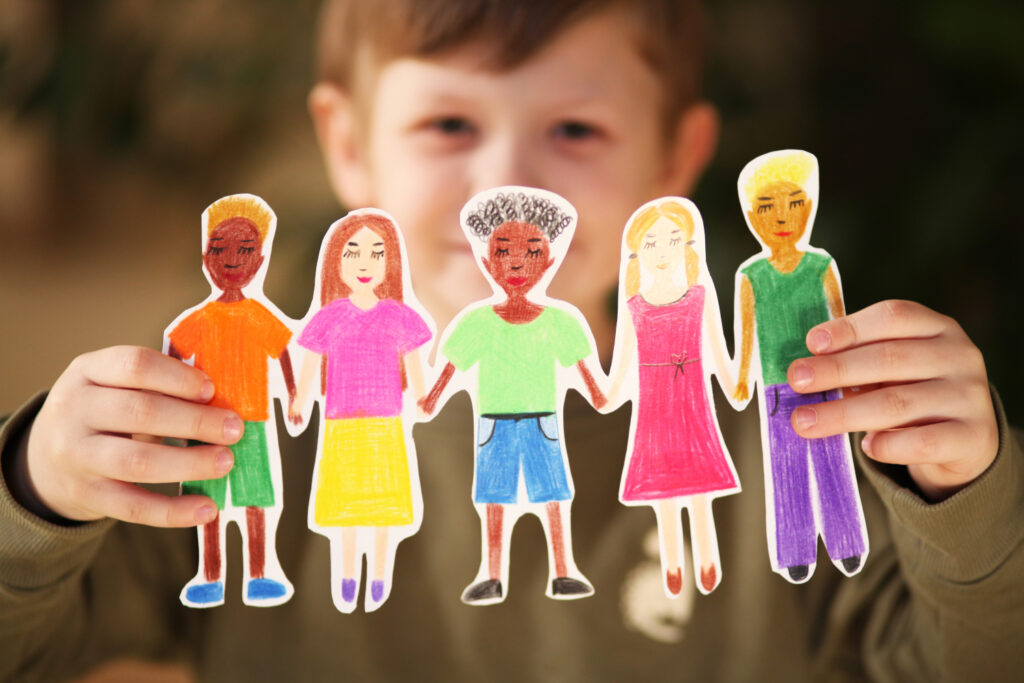The Link Between Addiction and Childhood Trauma: A Guide for Families in South Africa

Childhood trauma can have profound and long-lasting effects on an individual’s mental health and well-being. Experiences of abuse, neglect, household dysfunction, or other adverse events during critical developmental years significantly increase the risk of struggling with addiction later in life. Understanding the strong link between trauma and substance abuse can help families support their loved ones on the path to recovery.
What is Childhood Trauma?
Childhood trauma refers to emotionally painful or distressing experiences that occur before the age of 18. Some examples of traumatic events include:
- Physical, sexual, or emotional abuse
- Physical or emotional neglect
- Domestic violence
- Substance abuse or mental illness in the household
- Divorce or separation of parents
- Incarceration of a parent
- Death or abandonment by a parent
Coping with these experiences is extremely difficult for a child. Trauma disrupts their sense of safety and stability, shattering trust and creating feelings of helplessness, fear, guilt, and shame that often persist into adulthood.
The Impact of Childhood Trauma on Mental Health
Exposure to trauma during childhood dramatically impacts brain development. When a child faces a threat, the brain triggers a fight-flight-or-freeze response, releasing stress hormones like adrenaline and cortisol. With repeated trauma, a child remains in this heightened stress response state, unable to relax.
Over time, childhood trauma can lead to:
- Difficulty regulating emotions
- Chronic anxiety and depression
- Low self-esteem
- Trouble forming healthy attachments
- Self-destructive behaviors
- Post-traumatic stress disorder (PTSD)
What is Childhood Trauma?
Childhood trauma refers to emotionally painful or distressing experiences that occur before the age of 18. Some examples of traumatic events include:
- Physical, sexual, or emotional abuse
- Physical or emotional neglect
- Domestic violence
- Substance abuse or mental illness in the household
- Divorce or separation of parents
- Incarceration of a parent
- Death or abandonment by a parent
Coping with these experiences is extremely difficult for a child. Trauma disrupts their sense of safety and stability, shattering trust and creating feelings of helplessness, fear, guilt, and shame that often persist into adulthood.
The Impact of Childhood Trauma on Mental Health
Exposure to trauma during childhood dramatically impacts brain development. When a child faces a threat, the brain triggers a fight-flight-or-freeze response, releasing stress hormones like adrenaline and cortisol. With repeated trauma, a child remains in this heightened stress response state, unable to relax.
Over time, childhood trauma can lead to:
- Difficulty regulating emotions
- Chronic anxiety and depression
- Low self-esteem
- Trouble forming healthy attachments
- Self-destructive behaviors
- Post-traumatic stress disorder (PTSD)
How Childhood Trauma Contributes to Addiction
Individuals who experienced childhood trauma are much more likely to abuse drugs or alcohol. Studies show that up to two-thirds of patients in addiction treatment report histories of childhood abuse or neglect. Several factors contribute to this strong link:
Self-Medication
Drugs and alcohol can temporarily numb painful emotions and memories related to trauma. Substances may be used to self-medicate symptoms of depression, anxiety, or PTSD. For many, the immediate relief provided by substances offers a way to escape from overwhelming emotions and traumatic memories. This temporary escape can quickly become a dependency, as individuals increasingly rely on substances to manage their emotional pain.
Disrupted Brain Chemistry
Childhood trauma impacts areas of the brain involved in reward processing and decision-making. The stress and trauma experienced in childhood can alter brain chemistry, affecting neurotransmitter systems responsible for mood regulation and impulse control. This can increase impulsivity and make one more vulnerable to developing an addiction. The brain’s altered reward pathways may also make substances more appealing, as they provide a powerful, albeit temporary, sense of relief and pleasure.
Unhealthy Coping Mechanisms
Without learning healthy ways to process emotions and cope with stress, individuals with trauma may turn to drugs or alcohol to escape and dissociate from pain. Trauma survivors often lack effective coping strategies, making it difficult for them to manage stress and emotional turmoil. Substances offer a quick fix, numbing feelings of pain, fear, and anxiety. However, this reliance on substances prevents the development of healthier coping mechanisms, perpetuating a cycle of addiction.
Supporting Your Loved One Through Recovery
Understanding the link between childhood trauma and addiction is crucial for providing effective support. Here are ways to help:
Encourage Professional Help
Seek out therapists and counselors who specialize in trauma and addiction. Professional support can help address the root causes of substance abuse. These specialists are trained to understand the complex interplay between trauma and addiction, and they can provide tailored interventions to help your loved one heal.
Create a Supportive Environment
Foster a safe, supportive, and non-judgmental environment at home. Encourage open communication and be patient and understanding of their experiences and feelings. A stable and nurturing home environment can significantly impact recovery, offering a haven where your loved one feels understood and supported.
Promote Healthy Coping Strategies
Encourage healthy ways to cope with stress and emotions, such as exercise, mindfulness, and engaging in hobbies. These activities can help replace the need for substances. By promoting activities that enhance well-being, you can help your loved one develop positive habits that support long-term recovery.
Stay Informed
Educate yourself about childhood trauma and addiction. Understanding the challenges your loved one faces can help you provide better support. Knowledge empowers you to be more empathetic and proactive in your support, helping you navigate the complexities of their recovery journey.
Treatment Approaches for Trauma and Addiction
Comprehensive treatment for addiction often includes addressing underlying trauma. Various therapies can help process and heal from traumatic experiences, including:
Cognitive Processing Therapy (CPT)
CPT helps individuals challenge and change unhelpful beliefs related to trauma. It aims to reduce PTSD symptoms and improve overall mental health. By addressing cognitive distortions and developing healthier thought patterns, CPT can help trauma survivors regain control over their emotions and behaviors.
Eye-Movement Desensitization and Reprocessing (EMDR)
EMDR involves recalling traumatic events while making specific eye movements. This process helps reduce the emotional impact of trauma. EMDR can help individuals process traumatic memories more adaptively, reducing the intensity of distressing symptoms and promoting healing.
Holistic Therapies
Incorporating holistic therapies such as mindfulness, meditation, and art therapy can also aid in the healing process by promoting relaxation and self-expression. These therapies offer additional tools for managing stress and enhancing overall well-being, complementing traditional therapeutic approaches.
Moving Forward
Recovery from addiction and healing from childhood trauma is a long-term process that requires ongoing support and commitment. By addressing the root causes of addiction and promoting healthy coping mechanisms, individuals can achieve lasting sobriety and improve their overall quality of life.
Building a Support Network
Encourage your loved one to build a strong support network, including friends, family, and support groups. Connecting with others who understand their experiences can provide invaluable support. A robust support network can offer encouragement, accountability, and a sense of belonging, all of which are essential for sustained recovery.
Focus on Aftercare
Aftercare is essential for maintaining sobriety. Encourage your loved one to continue with therapy, attend support group meetings, and follow their personalized aftercare plan. Ongoing support and resources can help your loved one navigate challenges and prevent relapse, ensuring they stay on the path to recovery.
Childhood trauma significantly increases the risk of addiction. Understanding this link can help families support their loved ones more effectively. By fostering a supportive environment, encouraging professional help, and promoting healthy coping strategies, families can aid in the recovery process and help their loved ones heal from the past and move forward into a life of meaning and sobriety.






